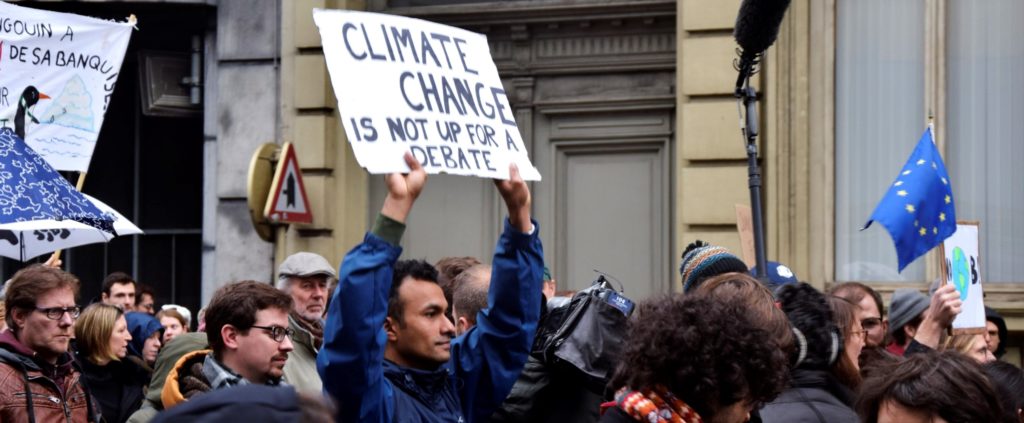A day of marches around the world is being organised by Laudato Si’ Generation, the youth branch of the Global Catholic Climate Movement. This year has been an extraordinary one for marches. Here in Brussels, there have been marches of up to 70,000 people. They are a vital contribution and a powerful statement. Throughout the past century, marches have had a powerful impact on world affairs. Gandhi’s salt march was a turning point in the history of India. The march to Montgomery was a turning point in the struggle against racism in the US. The civil rights marches in Northern Ireland and anti-apartheid marches across the world all marked the beginnings of major change.
Soldiers march into battle and the peaceful protest march is often the opening event in a long struggle. It is the first step. It says ‘we are here.’ Banners are raised. Chanting voices are heard in an exercise of hope and solidarity. Perhaps the most important impact of any protest march is on the marchers themselves. They take home the message that they are with others and that their anger and frustration is part of something bigger. Marches are the beginning, not the end.

Movements which challenge the deeply dug interests of powerful factions come face to face with an unyielding, and often violent, power. Ghandi’s march was followed by a grim exercise of police brutality at the Dharasana Salt Works and it would take the best part of twenty years for India finally to regain its independence. Martin Luther King was assassinated and, while much of what he fought for was achieved, many black people in the US remain oppressed. As for apartheid, it took more than four decades of campaigning to bring it to an end.
This may sound discouraging – very discouraging – for young people full of hope as they march on 24 May, but it is not being said to belittle the step they are taking. Far from it. Their anger is justified and they will have to nurture that anger so they can withstand the opposition they are sure to encounter in the years ahead. It is hard to imagine that climate change deniers will not resort to violence as they see their world view subverted by those who want to save the planet. This is already happening in some parts of the world.
There are two ways of responding to this kind of violence. The most typical response in the course of human history is to take up arms and fight. There is another way. Gandhi had been arrested when his followers marched on the Dharmasana Salt Works and his place was taken by Sarojini Naidu. She warned the marchers of the threat of violence against them: “You must not use any violence under any circumstances. You will be beaten, but you must not resist: you must not even raise a hand to ward off blows.” The climate movement has to start preparing for this challenge.
Edmond Grace SJ
Secretary for Ecology

